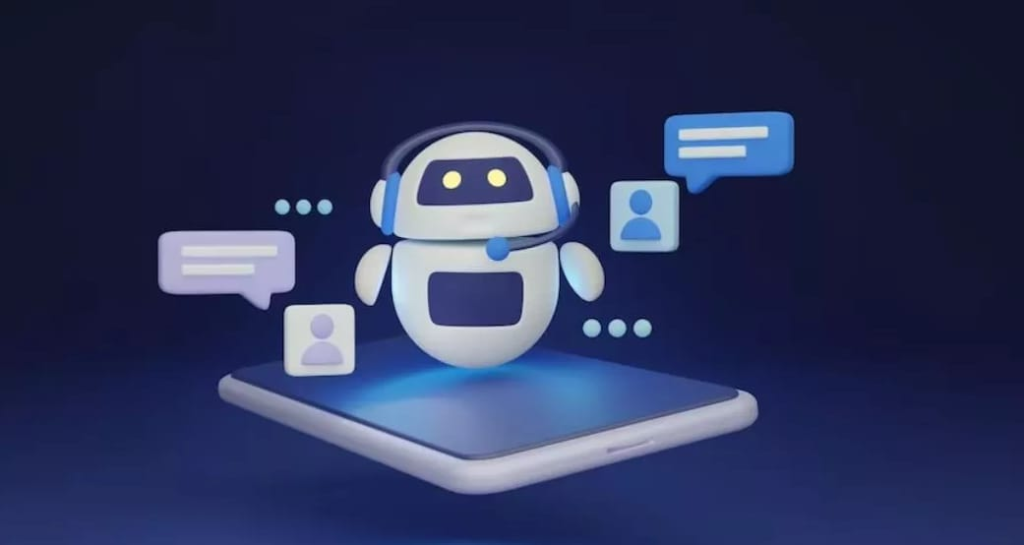A Comprehensive Guide to Chatbot Development
Chatbot development services are tending today because these solutions are fast becoming an integral part of our lives. From customer care and lead generation to repetitive task automation, chatbots are everywhere. They can now be used by businesses across all industries. In this article we cover the processes of creating a chatbot from start to finish.

Contents
- 1 What Is a Chatbot?
- 2 What Are the Key Components of a Chatbot Development Process?
- 3 What Programming Languages and Frameworks Are Commonly Used for Chatbot Development?
- 3.1 How Does Natural Language Processing (NLP) Play a Role in Chatbot Development?
- 3.2 What Are Some of the Challenges and Limitations Associated with Chatbot Development?
- 3.3 What Are Some Common Use Cases for Chatbots in Various Industries?
- 3.4 How Can Chatbots Be Integrated with Other Systems or Applications?
- 3.5 What Ethical Considerations Should Be Taken into Account When Developing Chatbots?
- 3.6 Conclusions
What Is a Chatbot?
A chatbot is a program that can provide a service or offer product through emulating human-like conversations with users. Based on their functionalities, the chatbots are often divided into:
- Rule-Based Chatbots: Theseare the programs built using pre-set scripts. They can perform some basic tasks, like answering frequently asked questions.
- AI-Powered Chatbots: These are bots created using some AI chatbot development service, like NLP or machine learning. These solutions can understand complex queries, learn from interactions, and give more dynamic responses.
What Are the Key Components of a Chatbot Development Process?
Usually, custom chatbot development services include the following steps:
- Use Case Definition: Long before any development takes place, it’s necessary to define the tasks your chatbot will be able to perform. Some examples to choose from include customer service assistants, an e-commerce bot guiding buyers, or an internal-use educational bot.
- Natural Language Processing (NLP):Any chatbot must understand user queries and interpret them correctly. The program’s ability to do that comes from NLP. Ineffective NLP integration will leave your chatbot with no understanding of the human language subtleties. Any chatbots development company should place NLP integration at the core of their solution creation process.
- Backend Integration: in order to work efficiently the chatbot must be integrated into any complex system on the backend side. This ensures that the solution remains stable, has access to necessary data, and can effectively interact with the users.
- User Interface (UI): User experience is as important for a chatbot as its backend integration capabilities. A clean and intuitive interface makes using the chatbot easy and enjoyable on any device used to access the product.
- Testing: The chatbot would require testing on whether or not it perceives users’ input correctly and reacts appropriately. Test various scenarios, such as varied inputs in language and frustration levels to fine-tune the bot’s performance.
What Programming Languages and Frameworks Are Commonly Used for Chatbot Development?
- Python: Python is the default choice for the majority of chat bot development services. TensorFlow, NLTK, and spaCy are top libraries used by AI, ML, and NLP developers to create some of the most responsive and human-like chatbots available now.
- Node.js: This language is one of the most popular now. Solution engineers choose it because Node.js allows getting some of the fastest response times. Therefore, Node.js-based chatbots perform the best in real-time conversations.
- Dialogflow: Developed by Google and currently one of the most popular frameworks, Dialogflow is used mostly for conversational interfaces. Bots developed with Dialogflow can be easily integrated into various platforms like Google Assistant, Slack, and Messenger.
- Microsoft Bot Framework: MBF is an integrated development environment. It’s mostly used for bots that can interact with users through several channels.
- Rasa: Rasa is an open-source framework popular among chatbots development companies. It’s easy to customize in terms of NLP capabilities and dialogue management.
How Does Natural Language Processing (NLP) Play a Role in Chatbot Development?
NLP, or Natural Language Processing, is the technology that allows the machine to understand user input, extract meaning, and formulate a response based on this context. The following list explains what NLP does for an AI chatbot development service:
- Parsing the Text: The process divides text into manageable parts. It includes identifying the entities-like names, dates, and locations so the bot knows what the user is asking for.
- Intent Identification: The chatbot can identify the intent through NLP. Suppose a user types “Can you help me track my order?” The bot should identify the intent – order tracking – and send an appropriate response.
- Sentiment Analysis: Through the use of sentiment analysis, a chatbot is able to deduce the mood of the message. Therefore, it will be able to generate a suitable response. For instance, a frustrated customer deserves a very understanding tone.
- Continuous Improvement: Chatbots driven by AI and NLP learn from conversations they have. Using machine learning algorithms, they perfect their responses over time to render better user experiences.
What Are Some of the Challenges and Limitations Associated with Chatbot Development?
- Complex Query Understanding: While much progress has been made in NLP, understanding very complex or ambiguous queries is still a challenge that only few of the most advanced chatbots can complete.
- Language and Dialects in Various Regions: When handling different languages or dialects, the training data is large and there are powerful language models involved. Therefore any chatbot developement service faces a complicated and costly challenge.
- Remembering Context: Most chatbots lack the ability to remember context in a multistep conversation. This can be frustrating to users when the are conversing with the bot.
- Low Emotional Intelligence: A bot might be able to perform some sentiment analysis. However, the program will still lack emotional intelligence to be of real use in sensitive conversations.
What Are Some Common Use Cases for Chatbots in Various Industries?
- Customer Support: The best application of bots is customer support because they can easily handle tasks like answering common questions or resolving some basic issues. In essence, a chatbot can substitute for a 24/7 call center.
- Retail and e-commerce: Chatbots can be fantastic helpers during the online sales process. They can help customers with product discovery, order tracking, and can even make purchases to complete conversions.
- Finance: Predictive analytics and ability to process data extremely fast enable the use of chatbots in the finance industry. They are able to answer general questions about account balances and recent transactions. In addition, they can be combined with predictive analytics solutions to make suggestions regarding financial products.
- Healthcare and telemedicine: Chatbots are life-saving solutions for some remote areas where healthcare services aren’t easy to reach. In the most basic applications, they help with setting up appointments and providing general health information to patients. However, they can also be used to help people identify their symptoms and perform basic diagnostics or provide first aid.
- Manufacturing: A manufacturing chatbot development company can create solutions that will administer the internal processes of enterprises. For example, they can manage supply chain inquiries and coordinate team member schedules.
How Can Chatbots Be Integrated with Other Systems or Applications?
- Integration with CRM: Chatbots can pull information from extensive databases and push it to CRM systems. This way, customer support agents can access users’ information quickly and efficiently.
- Payment Gateways: The integration with payment systems allows chatbots to handle transactions. This can be a huge help in e-commerce, making various processes faster and more efficient.
- ERP Systems: ERPs with chatbot integration can facilitate some complex processes within enterprises, for example, inventory management or production scheduling.
- Social Media Platforms: Most of the chatbot development companies create solutions that are integrated with Facebook Messenger, Slack, WhatsApp, etc. These tools allow business to reach their customers directly.
What Ethical Considerations Should Be Taken into Account When Developing Chatbots?
The use of chatbots and AI becomes more widespread and ethics has become a major concern for this technology. Some key points to consider:
- Data Privacy: While collecting a lot of user data, chatbots should maintain strong security not only because of regulations but to protect user information and personal safety.
- Transparency: It should be clear from the beginning if a user is interacting with a bot, not a human. Otherwise, the use of a bot might be considered deceitful and could result in a breach in trust with the customer.
- AI Bias: Sometimes these models hold a certain bias depending on the data they get trained on. It becomes critical to monitor the performance of a chatbot every now and then with the ability to guarantee fairness and inclusiveness.
- AI Dependence: Overdependence on a chatbot when it comes to critical services, for instance, healthcare or finance, without human input, can lead to disasters. Therefore, a human operator must be able to enter the conversation when necessary.
Conclusions
Chatbots are revolutionizing many aspects of customer-business interactions. They do it through efficiency, providing better customer experience, and cost savings. Therefore,any business that wants to retain a competitive advantage today must use these solutions.
If creating a bot on your own isn’t possible for your business then you will need to cooperate with a reliable chatbot development company or an AI chatbot development service. They will sort out all the complexities of the process and provide you with a powerful and user-friendly system.
If you are ready to embark on this journey, make sure to partner with an experienced chatbot development service provider. They must have the knowledge of your industry and the technical capability to manifest your dream into reality

